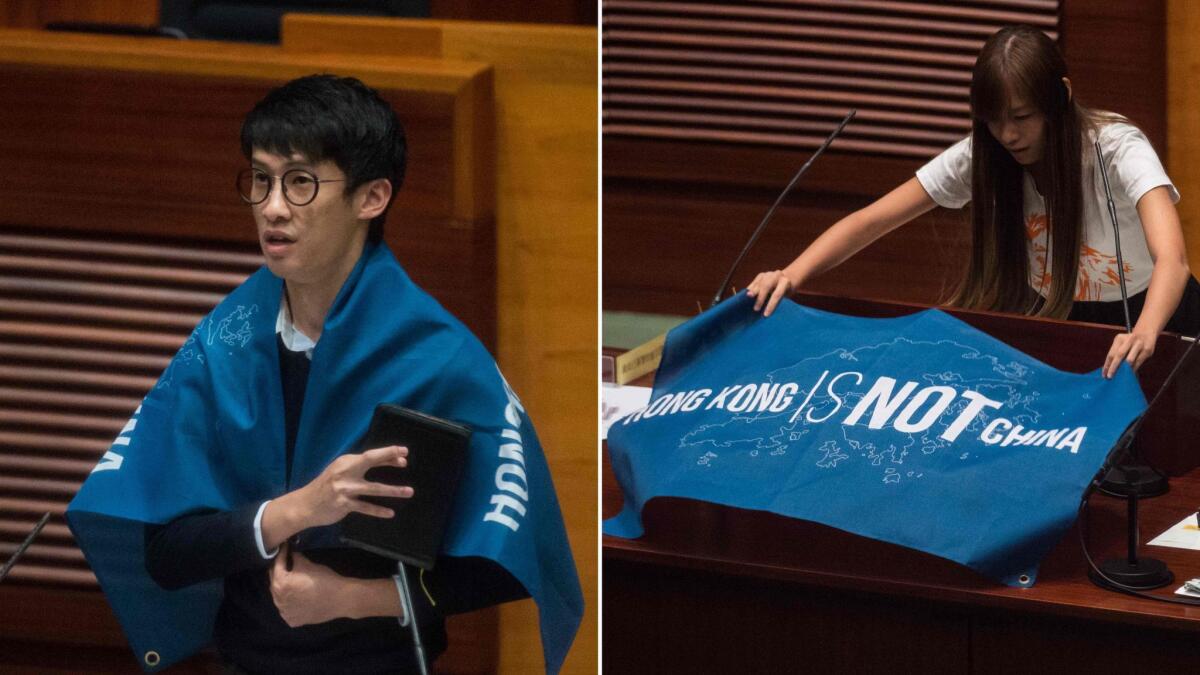Two Hong Kong lawmakers are disqualified from taking office after altering oaths

- Share via
Reporting from Hong Kong — Two newly elected Hong Kong separatist lawmakers who altered their oaths by adding anti-China insults were disqualified from taking office in a court decision Tuesday.
A High Court judge ruled that Sixtus Leung and Yau Wai-ching of the Youngspiration party violated a section of the semiautonomous Chinese city’s mini-constitution, the Basic Law, as well as laws covering oaths taken by officials.
The judge sided with Hong Kong’s leader, Chief Executive Leung Chun-ying, and Justice Secretary Rimsky Yuen, who had filed a legal challenge aimed at preventing the two from taking their seats, arguing that they had effectively declined to take their oaths by distorting them at the swearing-in ceremony last month.
The provocative tactics by Leung, 30, and Yau, 25, also included displaying a flag that said “Hong Kong is Not China” and using an old-fashioned derogatory Japanese term for China. Yau inserted a curse word into her pledge while Leung crossed his fingers.
In an unprecedented step, Beijing responded by handing down its own interpretation of the Basic Law last week, circumventing Hong Kong’s courts and raising fears that the city’s wide autonomy and independent judiciary under Chinese rule were being undermined.
China’s top legislative panel, the National People’s Congress Standing Committee, sparked protests with its decision that anyone advocating independence for Hong Kong should be disqualified from office, ruling out a second chance for Leung and Yau to take their oaths.
Hong Kong courts are required to enforce such rulings, though Justice Thomas Au said it had no effect on his decision.
“By seeking to make a mockery of China and the People’s Republic of China in a derogatory and humiliating manner, it is objectively plain that Mr. Leung and Ms. Yau refused to pledge allegiance to the Hong Kong Special Administrative Region as an inalienable part of the People’s Republic of China,” the judge said.
ALSO
Trump’s plans to scuttle or amend the Iran nuclear deal remain a work in progress
How a professor in China predicted Trump’s victory more accurately than most U.S. pollsters
More to Read
Sign up for Essential California
The most important California stories and recommendations in your inbox every morning.
You may occasionally receive promotional content from the Los Angeles Times.













